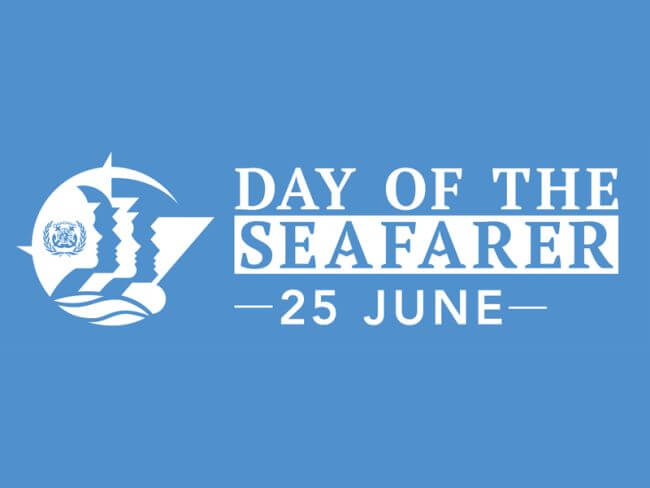This weekend, the maritime industry celebrates the Day of the Seafarer, a day for remembering and honoring the role that seafarers play in the global economy – and the challenges they face.
“The world counts on seafarers,” said Secretary-General António Guterres. “Ships transport a remarkable 90 per cent of the world’s commodities – from grains and energy, to consumer goods and much more. Without ships and the women and men who work on them, economies would stall and people would starve.”
This year, the IMO is calling seafarers to share the story of their own personal voyages in a social media campaign. The agency has asked seafarers to post two photos on Twitter using hashtag #SeafarersJourney: one photo of their first voyage and another of their most recent voyage. IMO is also asking for stories about what has changed over the span of seafarers’ careers.
“Every day, hundreds of thousands of seafarers are underway on ships, while others take their well-deserved break – getting ready for their next voyage. Their ships are key movers of global trade, and engines of the global economy, transporting cargoes such as food, medicines, electronics and more,” said IMO Secretary-General Kitack Lim in an address. “Shipping and the call of the oceans, form a way of life. It is a meaningful, important career that provides a solid foundation for life and offers endless opportunities to learn and progress. This noble profession is something that I hold close to my heart and for many of us, our voyages are the start of a lifelong maritime journey.”
The day is also an opportunity for the industry to reflect on the future of seafaring, including working conditions, recruitment questions and public perceptions of a seafaring career. The COVID-19 pandemic, the crew change crisis and the curtailment of shore leave have had a measurable impact on seafarer happiness, with potential effects on the industry’s retention rate and reputation as an employer.
“What happened during the COVID crisis, with crews stuck for months on board vessels, has done lasting damage to how shipping is perceived,” said Capt. Rahul Khanna, Global Head of Marine Risk Consulting at Allianz Global Corporate & Specialty. “Some initiatives are pushing for change, but the fact that the seafaring community often feels like secondhand workers compared to those on shore must be addressed by the ship-owning community and stakeholders . . . We need to emphasize the positives of seafaring to the young men and women who are willing to explore it.”
Source: The Maritime Executive






